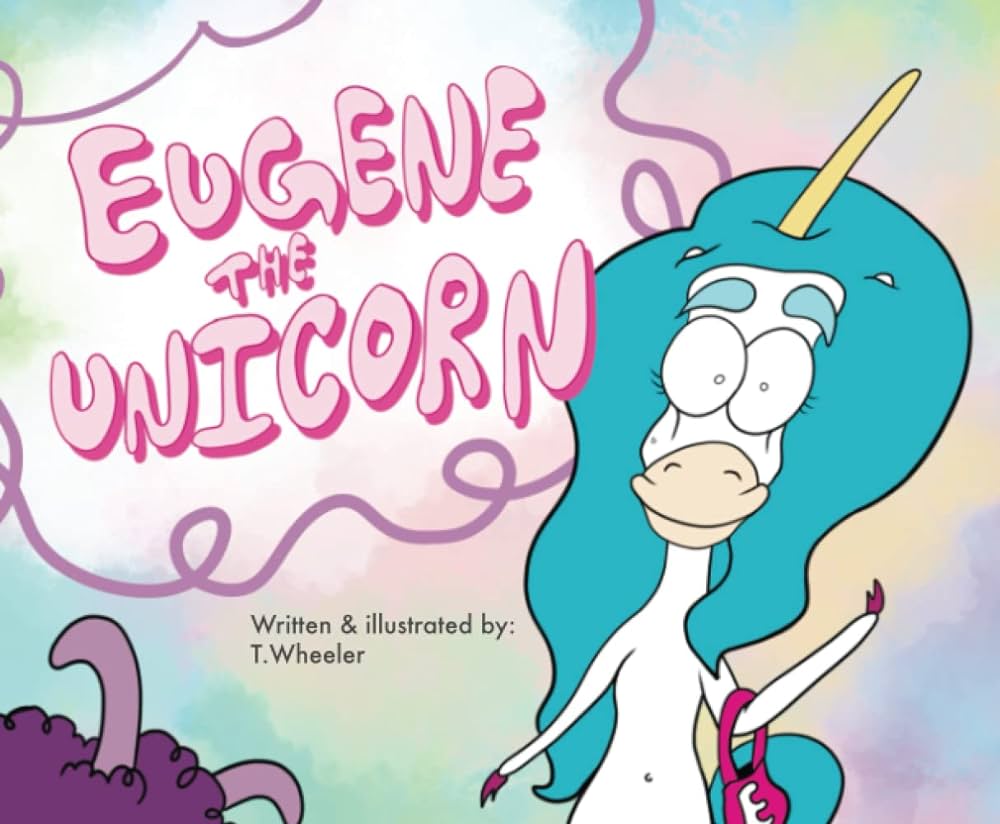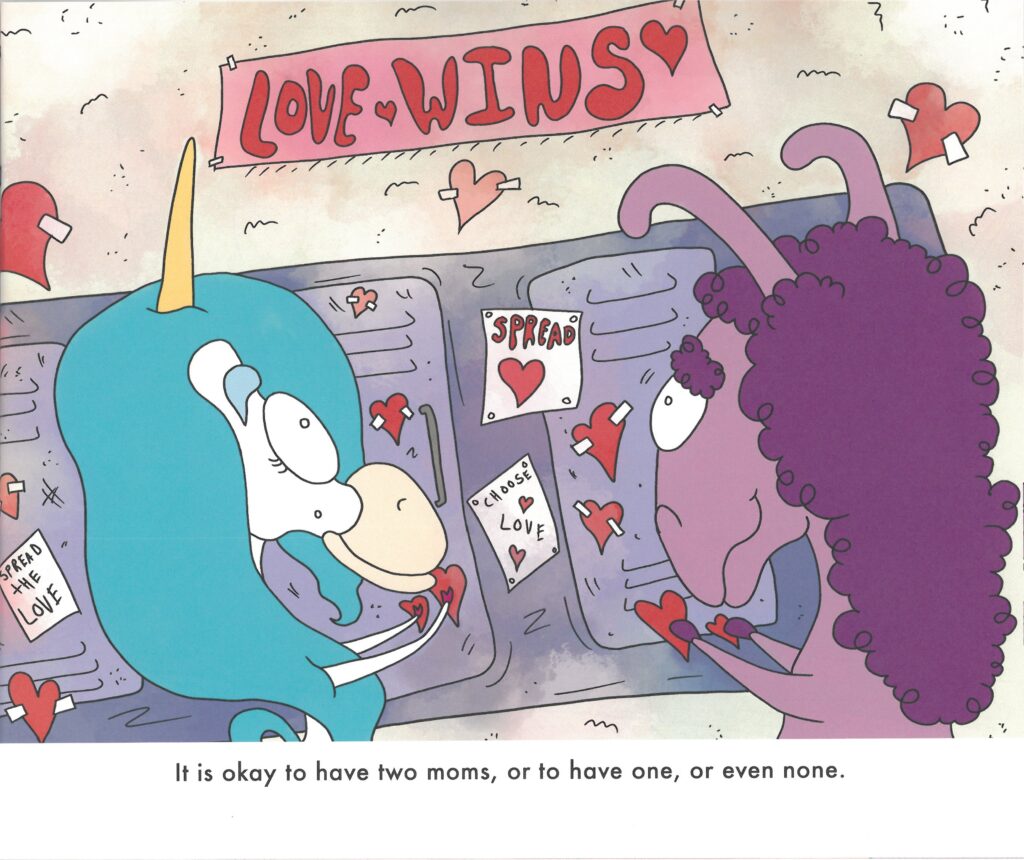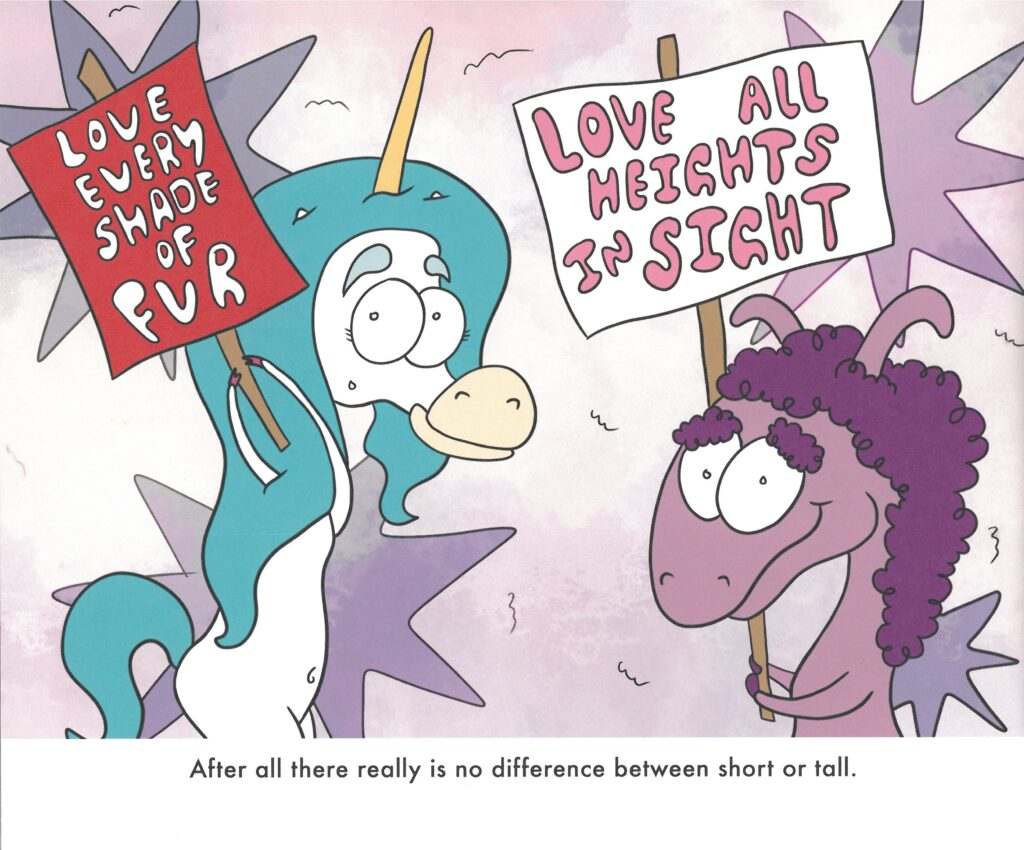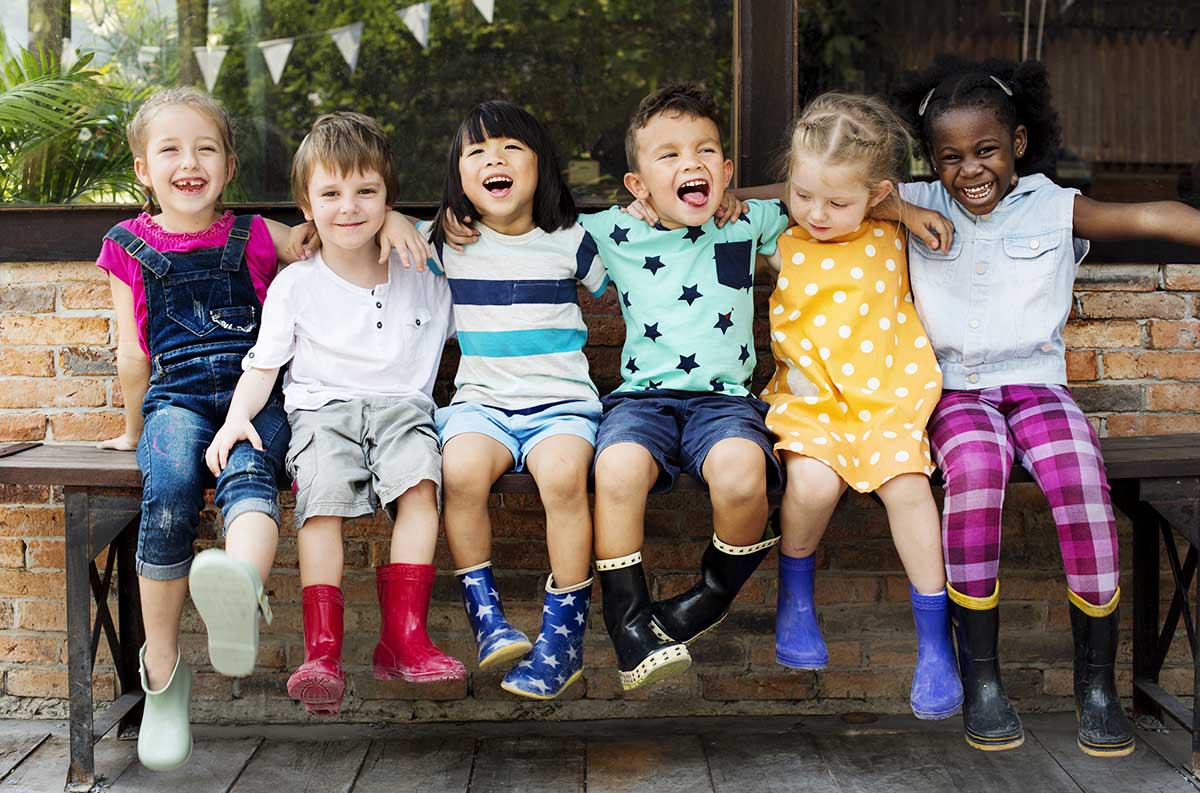
Inclusive Children's Book Teaching Guide
Eugene the Unicorn
What is this book about?
Eugene the Unicorn is starting at a new school where it is challenging to make friends and feel comfortable. He makes friends with Donna the Donkey, who also feels out of place in a school full of goats and horses.
Eugene and Donna discover the ways that they are similar and the ways that all of the animals at their school are unique. They unite to share a message of acceptance and a celebration of diversity.
The intent behind this book, although subtle, is to encourage children to ask questions and engage in discussions about the LGBTQ+ community.
Who is depicted in this book?
- Animal characters who transcend gender stereotypes
What early childhood themes and concepts does this book explore?
- Making friends can be difficult in a new environment such as a school
- When we are in the company of people who love and care for us, we may feel less afraid
- Social play behaviors such as holding hands, walking, running, playing kickball, and riding bikes
- Vocabulary related to behaviors that are associated with accepting differences (e.g., learning, listening, explaining)
- People are diverse in many ways
- School is a place where we can celebrate our diversity
How does this book support anti-bias education?
This book depicts a relatable situation: Feeling anxious and uncertain in a new environment (in this case, a new school) and wondering if the other children will accept us.
Eugene the Unicorn focuses on how to show curiosity and respect as we attempt to share and learn about differences. These are important building blocks of empathy and allyship in early childhood learning environments. Even the youngest children may appreciate the silly illustrations of animals and the emotions that they express, while the more complex narratives about accepting others for who they are may be relatable to older children. Note: The author does not refer to Eugene and Donna with gender-specific pronouns in the text.
Depending on how the book is shared or used—and the developmental level of the children—Eugene the Unicorn may be used to support the following core goal from Anti-Bias Education for Young Children and Ourselves:
Identity—Teachers will nurture each child’s construction of knowledgeable and confident personal and social identities so that children will demonstrate self-awareness, confidence, family pride, and positive social identities.
Diversity—Teachers will promote each child’s comfortable, empathetic interactions with people from diverse backgrounds so that children will express comfort and joy with human diversity, use accurate language for human differences, and form deep, caring connections across all dimensions of human diversity.
How can this book be used to meet early childhood learning standards?
For all ages
Use Eugene the Unicorn to meet early childhood literacy standards
For children from birth to age three
Teaching suggestion: Point out forms of kindness in everyday play and interactions that the youngest children can react to, point at, or name.
What Illinois Early Learning Guideline does this meet for children from birth to age three?
Developmental DomainSocial-Emotional Development
Standard: Relationship with PeersChildren demonstrate the desire and develop the ability to engage and interact with other children.
Indicators for children:
- Begins to engage in parallel play, in closer proximity to other children but no interaction is attempted (7–18 months)
- Begins to engage in simple reciprocal interactions such as rolling a ball back and forth (16–24 months)
- Demonstrates a preference for select peers (21–36 months)
Teaching suggestion: Point out the actions taken by Eugene and Donna, as well as various settings in this story that the youngest children can react to, point at, or name.
What Illinois Early Learning Guideline does this meet for children from birth to age three?
Developmental DomainSocial-Emotional Development
Standard: Relationship with PeersChildren demonstrate the desire and develop the ability to engage and interact with other children.
Indicators for children:
- Begins to engage in parallel play, in closer proximity to other children but no interaction is attempted (7–18 months)
- Begins to engage in simple reciprocal interactions such as rolling a ball back and forth (16–24 months)
- Demonstrates a preference for select peers (21–36 months)
For preschoolers (ages three to five)
Teaching suggestion: Eugene and Donna meet and then brainstorm ideas about how children can become better friends by learning about one another’s uniqueness. Engage children in recalling and retelling these sequences.
What Illinois Early Learning and Development Standards does this meet for preschoolers?
Language Arts Standard2BRecognize key ideas and details in stories.
Benchmark 2.B.ECb:
With teacher assistance, retell familiar stories with three or more key events.
Teaching suggestion: Encourage the children to identify the feelings expressed by Eugene and Donna.
What Illinois Early Learning and Development Standards does this meet for preschoolers?
Social/Emotional Development Standard30AIdentify and manage one’s emotions and behavior.
Benchmark 30.A.ECa:
Recognize and label basic emotions.
Teaching suggestion: As you read Eugene the Unicorn aloud, encourage the children to listen for the traits of a good friend and share their ideas about these traits.
What Illinois Early Learning and Development Standards does this meet for preschoolers?
Social/Emotional Development Standard31ADevelop positive relationships with peers and adults.
Benchmark 31.A.ECa:
Show empathy, sympathy, and caring for others.
Benchmark 31.A.ECe:
Develop positive relationships with peers.
Teaching suggestion: Compare and contrast Eugene the Unicorn with another story about friendship.
What Illinois Early Learning and Development Standards does this meet for preschoolers?
Language Arts Standard2DEstablish personal connections with books.
Benchmark 2.D.ECb:
With teacher assistance, compare and contrast two stories relating to the same topic.
Teaching suggestion: Use Eugene the Unicorn as an opportunity to talk about and affirm loving friendships among children who openly share their interests, emotions, family structures, and other characteristics.
What Illinois Early Learning and Development Standards does this meet for preschoolers?
Social/Emotional Development Standard31ADevelop positive relationships with peers and adults.
Benchmark 31.A.ECa:
Show empathy, sympathy, and caring for others.
Benchmark 31.A.ECe:
Develop positive relationships with peers.
See inside this book.


